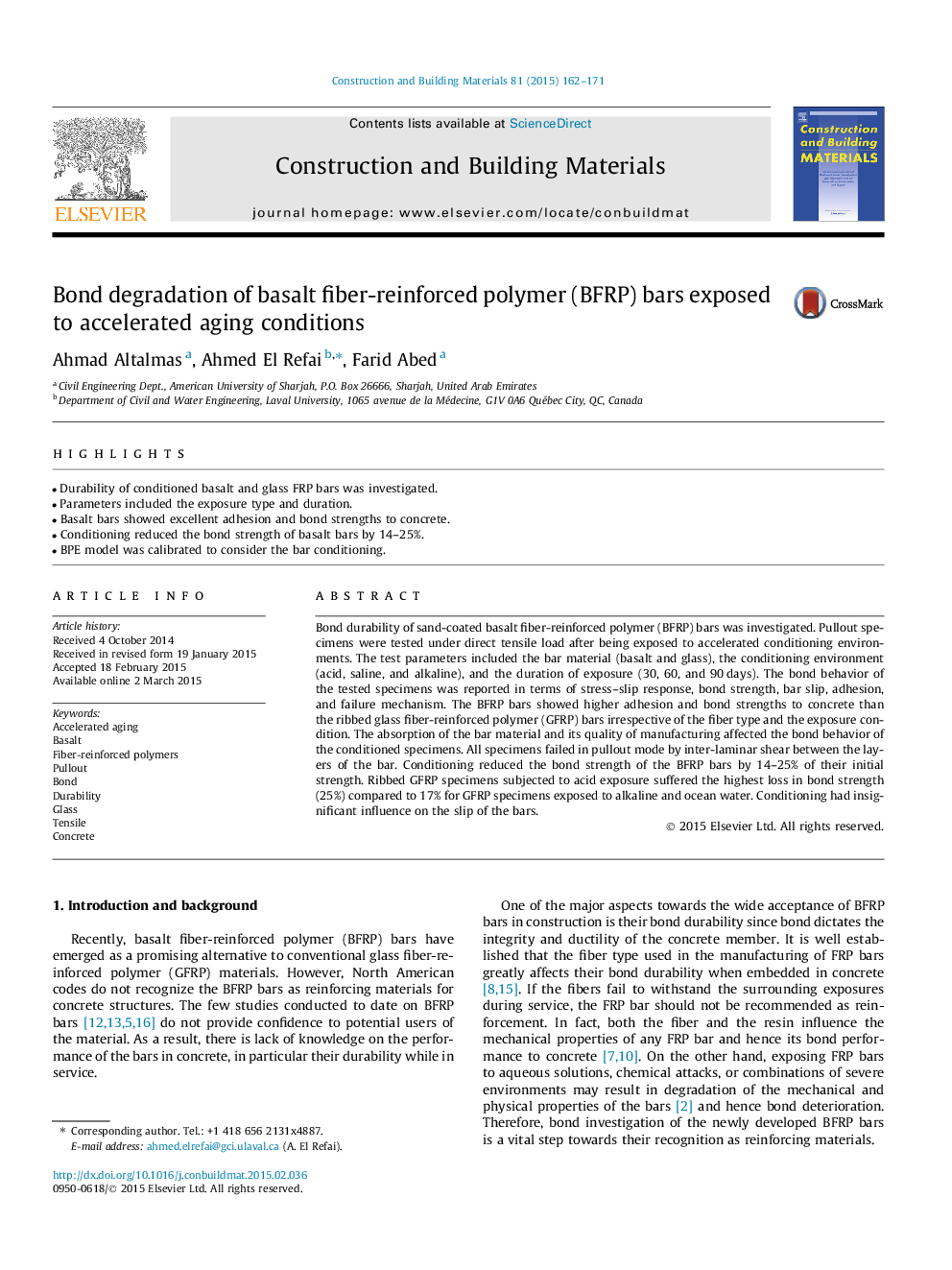| Article ID | Journal | Published Year | Pages | File Type |
|---|---|---|---|---|
| 6721169 | Construction and Building Materials | 2015 | 10 Pages |
Abstract
Bond durability of sand-coated basalt fiber-reinforced polymer (BFRP) bars was investigated. Pullout specimens were tested under direct tensile load after being exposed to accelerated conditioning environments. The test parameters included the bar material (basalt and glass), the conditioning environment (acid, saline, and alkaline), and the duration of exposure (30, 60, and 90Â days). The bond behavior of the tested specimens was reported in terms of stress-slip response, bond strength, bar slip, adhesion, and failure mechanism. The BFRP bars showed higher adhesion and bond strengths to concrete than the ribbed glass fiber-reinforced polymer (GFRP) bars irrespective of the fiber type and the exposure condition. The absorption of the bar material and its quality of manufacturing affected the bond behavior of the conditioned specimens. All specimens failed in pullout mode by inter-laminar shear between the layers of the bar. Conditioning reduced the bond strength of the BFRP bars by 14-25% of their initial strength. Ribbed GFRP specimens subjected to acid exposure suffered the highest loss in bond strength (25%) compared to 17% for GFRP specimens exposed to alkaline and ocean water. Conditioning had insignificant influence on the slip of the bars.
Related Topics
Physical Sciences and Engineering
Engineering
Civil and Structural Engineering
Authors
Ahmad Altalmas, Ahmed El Refai, Farid Abed,
